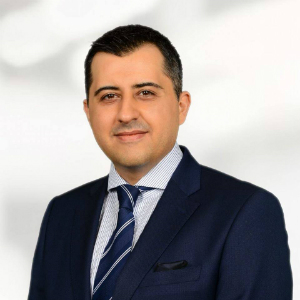Bulgaria’s Premier Boyko Borissov paid an official visit to Germany last weekend. Premier Borissov accentuated on Bulgaria’s advantage as an investment destination. Borissov met with representatives of several German companies from the Foundation for Family Businesses. Boyko Borissov also met with the German Minister of Finance Wolfgang Schäuble. Head of the Commercial and Economic Affairs Section with the Bulgarian Embassy in Berlin Stefan Ionkov told Radio Bulgaria about the result of those meetings:
 “The German companies which attended the forum showed huge interest in Bulgaria. This was due to the excellent partnership between Bulgaria and Germany on a political level. Today our country has a very positive image among the German business. The German business is now confident that Bulgaria is an island of stability in the Balkans and is very suitable for new production facilities. This confidence was demonstrated by all participants at the forum. The Commercial and Economic Affairs Section with the Bulgarian Embassy in Berlin will work with all companies that showed interest in Bulgaria. We have already invited these companies to visit Bulgaria and study every single investment destination, in order to choose the best one.”
“The German companies which attended the forum showed huge interest in Bulgaria. This was due to the excellent partnership between Bulgaria and Germany on a political level. Today our country has a very positive image among the German business. The German business is now confident that Bulgaria is an island of stability in the Balkans and is very suitable for new production facilities. This confidence was demonstrated by all participants at the forum. The Commercial and Economic Affairs Section with the Bulgarian Embassy in Berlin will work with all companies that showed interest in Bulgaria. We have already invited these companies to visit Bulgaria and study every single investment destination, in order to choose the best one.”
In 2016 the bilateral trade between Germany and Bulgaria hit record high levels and amounted to EUR 6.6 billion. This amount was 5% higher as compared to 2015. However, the interest of the German business in Bulgaria should maintain at a steady level, Stefan Ionkov said and added:
“A large part of the Bulgarian exports to Germany is formed by German investors who are already manufacturing in our country and export their produce back to Germany. We launched a direct mail campaign to potential German investors with business overseas. Our database now contains over 5,000 German companies and has been constantly increasing. We have also entered in partnership with the German Association for Small and Medium-Sized Business. Soon that association will establish a representation in Bulgaria. The German business is also interested in Bulgarian start-up companies. New initiatives will assist Bulgarian start-up companies to penetrate the German market.”
Currently companies manufacturing spare car parts and firms producing home appliances show high interest to invest in Bulgaria, Stefan Ionkov says and adds:
“We have been also trying to develop the manufacture of railway components. A business delegation of 10-15 German companies is to visit Bulgaria in October this year. We organized that visit together with the German Railway Industry Association. They will study the opportunities to invest and manufacture in our country. These companies are looking for medium and high-level engineers. I believe that this tendency will continue in the future.”
With regard to the problem related to the lack of personnel Bulgaria can learn from the German experience, Stefan Ionkov contends and adds:
“The problems regarding the lack of personnel exist in all European countries. There is a shortage of qualified staff in Germany as well. Dual education is very popular in that country. Fortunately, the Bulgarian cabinet has focused on the introduction of that type of education in Bulgaria, too. Dual education combines theoretical and practical training. It will help Bulgaria attract new investors, because a given investor would make an investment decision easier when he knows that he could find good experts in certain regions of our country. The universities must partner with the local business. A German automotive company has launched a joint Master’s degree programme together with the Technical University of Sofia. Thus, experts gain theoretical knowledge at the Technical University and practical experience at the company. The programme was created entirely under the requirement of the German company. Other German companies should follow that example as well.”
English version: Kostadin Atanasov
A concession award procedure for Plovdiv Airport is planned, Deputy Premier and Minister of Transport and Communications Grozdan Karadjov said at a meeting with aviation industry representatives. Minister Karadjov emphasized that he supports the idea..
Bulgaria’s Minister of Finance Temenuzhka Petkova said that the turnover of large retail chains in Bulgaria decreased by 28.8% on the day of the boycott compared to the previous day, reported BTA. Temenuzhka Petkova took part in the meeting on..
The highest average salary in Bulgaria is in Sofia - 1732 euro, and the lowest in Smolyan - 826 euro. These are the data from the National Statistical Institute (NSI) for December 2024. Because of the salaries in the capital, the average salary in..
A concession award procedure for Plovdiv Airport is planned, Deputy Premier and Minister of Transport and Communications Grozdan Karadjov said at a..

+359 2 9336 661
